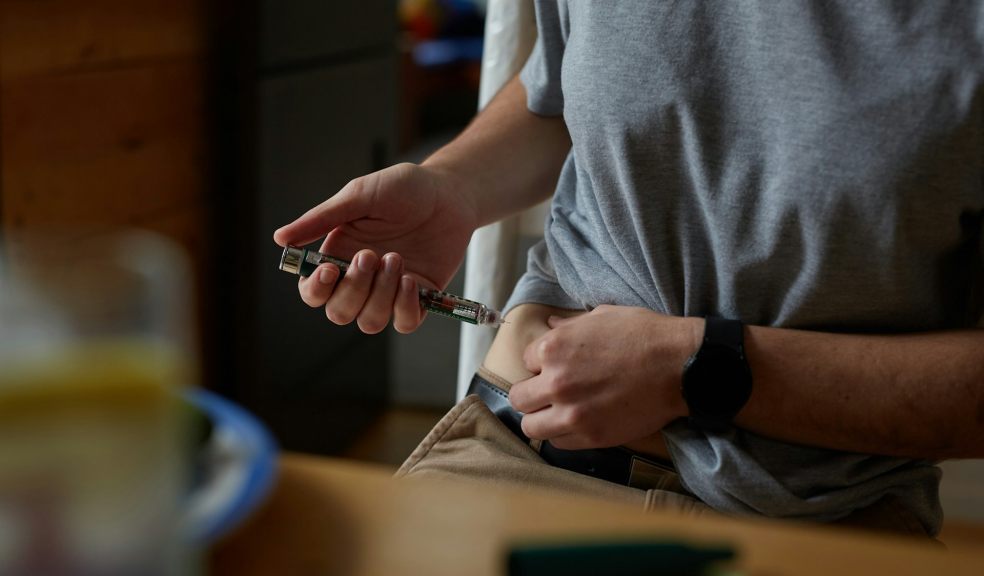
University of Exeter awarded funding by the Type 1 Diabetes Grand Challenge to use brain cells to outsmart type 1 diabetes
Today the Type 1 Diabetes Grand Challenge, a trailblazing partnership between the Steve Morgan Foundation, Diabetes UK, and Breakthrough T1D (formerly JDRF) has announced funding for a cutting-edge research project led by researchers at the University of Exeter, which could bring us closer to a cure for type 1 diabetes.
Drs Craig Beall and Thomas Piers and their teams will explore whether a type of cell found in the brain can be used to develop long-lasting, effective beta cell therapies for type 1 diabetes. These therapies could transform the way the condition is treated by helping people to make their own insulin again, but for everyone to benefit scientists need to develop ways to produce an endless supply of healthy beta cells in the lab and to keep the type 1 immune attack at bay.
In Devon, around 6,415 people live with type 1 diabetes, a condition where the immune system mistakenly attacks and destroys insulin-producing beta cells in the pancreas. But beta cells aren’t the only cells that make insulin. It is also produced in the brain and these cells are hidden from immune attack in type 1 diabetes. Unfortunately, the insulin produced by brain cells isn’t released in the right place or in high enough quantities to help manage blood sugar levels in type 1 diabetes.
The research team will explore whether it is possible to grow insulin-producing brain cells and pancreas beta cells together on an “organ on a chip” device. The aim is to produce clusters of cells that have both the brain cells’ ability to evade the type 1 immune attack and the beta cells’ ability to produce lots of insulin.
It is hoped this research will improve the success of beta cell therapies. Clinical trials of these therapies are underway, but treatments are often compromised by the immune system attack, meaning people who’ve had them usually require immunosuppressant drugs. Developing beta cell therapies that are also resistant to the immune system could help prolong their effectiveness and reduce the need for immunosuppressant drugs. This would eliminate the need for multiple daily insulin injections or insulin pumps, constant blood sugar monitoring, and help to prevent the devasting complications of type 1 diabetes.
The funding comes from the unprecedented £50 million investment from the Steve Morgan Foundation, which is supporting pioneering and multidisciplinary teams of researchers to develop new treatments and cures for type 1 diabetes.
The University of Exeter is one of four universities leading new projects, totalling over £2 million, joining Imperial College London and the Universities of Oxford and Cambridge.
Dr Craig Beall, Lecturer at the University of Exeter, said: “We are really excited to have this funding from the Type 1 Diabetes Grand Challenge. This scheme really pushed us to harness brainpower to come up with the best possible ideas and to look for creative new concepts. The moonshot we’re aiming for is a cure that frees people with type 1 diabetes from insulin injections and immunosuppression, and this is the next step in that journey.”
Dr Elizabeth Robertson, Director of Research at Diabetes UK, said: “These high-risk, high-reward, innovative projects exemplify the transformative potential of the research funded by the Type 1 Diabetes Grand Challenge. Bold, cutting-edge approaches, like turning to brain cells to shield and boost beta cells, help us to step closer to revolutionising the way type 1 diabetes is treated and improving the lives of those affected by the condition.”
Rachel Connor, Director of Research Partnerships at Breakthrough T1D, said: “We are thrilled to see the Type 1 Diabetes Grand Challenge powering this innovative research. This project at the University of Exeter exemplifies the kind of groundbreaking work that can happen when scientists have the opportunity to come together and think creatively. By exploring the potential of these insulin-making cells in the brain, this research could lead to innovative therapies that not only improve the lives of those living with type 1 diabetes but also help pave the way for a future without the burden of daily insulin management.”
Summaries of each newly funded project can be found here. The Type 1 Diabetes Grand Challenge was established following the Steve Morgan Foundation’s generous £50 million donation into type 1 diabetes research. Over five years the Type 1 Diabetes Grand Challenge is funding collaborative research with the greatest potential to lead to life-changing new treatments. So far, over £23 million has been allocated to exceptional research teams in the UK, who are leading the race towards a cure for type 1 diabetes.













